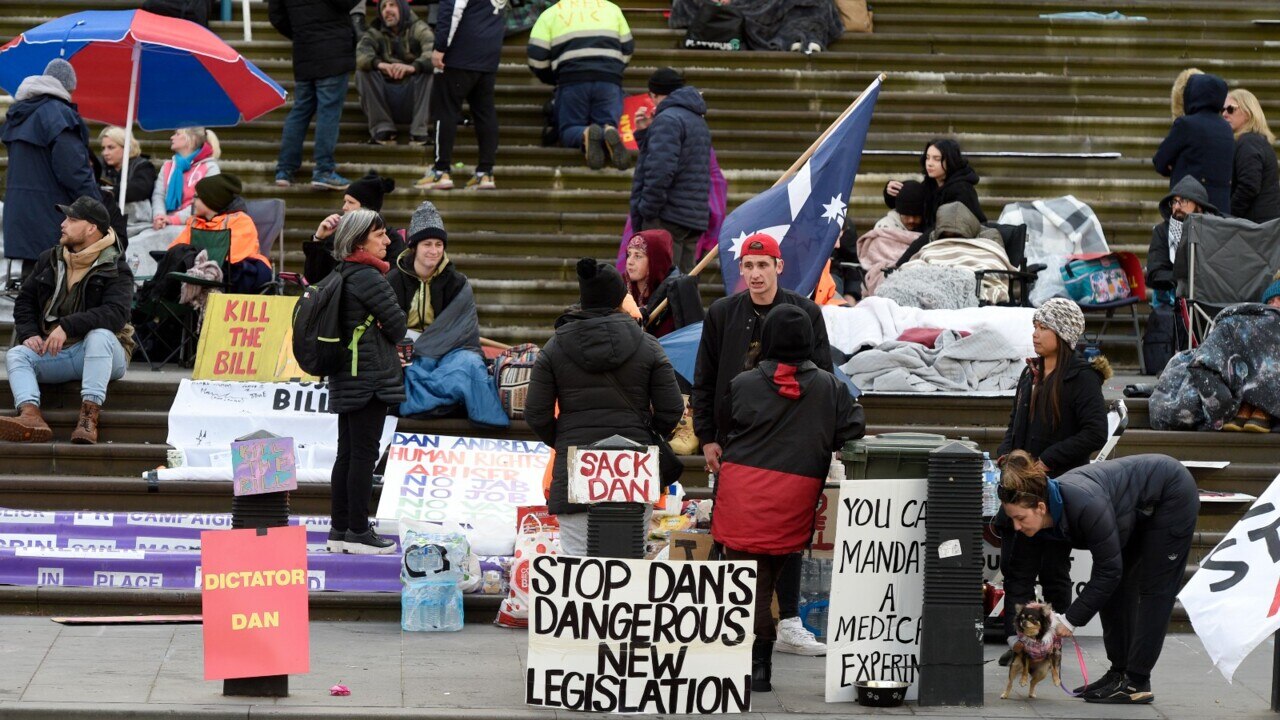The big problem with pandemic Bill amendments
Ignore the Parliament House protesters who have likely not read the Bill, and still significant concerns remain.

There’s been much crowing about the amendments to the Andrews government’s controversial pandemic management Bill.
But don’t be fooled: most of it is little more than window dressing.
In the three weeks since the proposed laws were first unveiled lawyers, human rights experts and civil liberty groups have issued stern warnings about flaws with the Bill.
The government amendments go some way to addressing those flaws and increasing the transparency, oversight and accountability mechanisms built into the legislative framework.
It will be harder for a pandemic to be declared, with a reasonable grounds test to be met before such action could be taken.
But still, a pandemic could be declared even if a virus wasn’t in Victoria.

Public health advice underpinning pandemic orders will need to be published within seven days of an order being made, not 14.
A vast improvement, but well short of the contemporaneous publication that had been sought in order to enable access to efficient and effective judicial review as needed.
And the maximum financial penalties for breaching orders have been halved.
But still, a jail term could apply for up to two years for the most serious aggravated offending.
Perhaps the biggest victory for those concerned about the potential infringement of human rights is the clarification that pandemic orders based on characteristics, attributes or circumstances of persons must be relevant to a public health risk.
And any reference to attributes as defined by the Equal Opportunity Act has been removed, meaning discrimination of people on the basis of their religion or political belief now seems very unlikely.

Strip away the hyperbole from an over-excited opposition desperate to score some political points, and ignore the Parliament House protesters who have likely not read the Bill, and still significant concerns remain.
Ombudsman Deborah Glass has been quick to point out the amendments don’t go far enough, in views that have been echoed by other interested stakeholders.
First, calls for greater parliamentary oversight have seen little change.
Still, moves to disallow, or overturn, pandemic orders would still need a recommendation by a government-chaired committee then agreement by both houses of Parliament.
In other words, an almost impossible threshold.
Second, there has been no expansion of the Independent Pandemic Management Advisory Committee to include an independent panel of experts working alongside the chief health officer.
Instead, it will likely be stacked with unelected government cronies who will make recommendations that don’t actually have to be followed in any event.
Lastly, there has been no change to provisions around the detention of people.
Importantly, there is still no mechanism by which to appeal immediately before a court a detention order.
In a submission to the Department of Health the Victorian Bar urged the government not to ignore the “rule of law, the sovereignty of parliament and the checks and balances of our democratic Westminster system of government … even in times of emergency or crisis.
“It may be convenient for the government to have the broadest and most flexible powers possible to deal with pandemic diseases. However, the rule of law cannot bow to convenience.”
There is no argument that a pandemic management Bill is needed.
The proposed laws are a vast improvement on the current legislative framework with which to manage a pandemic.
But ongoing concerns about its operation should not be ignored.





